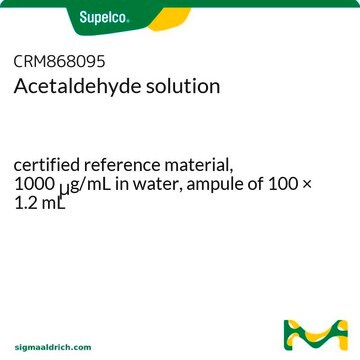103128
2-Methyl-3-heptanone
99%
Synonym(s):
Butyl isopropyl ketone
Sign Into View Organizational & Contract Pricing
All Photos(1)
About This Item
Linear Formula:
CH3(CH2)3COCH(CH3)2
CAS Number:
Molecular Weight:
128.21
EC Number:
MDL number:
UNSPSC Code:
12352100
PubChem Substance ID:
NACRES:
NA.22
Recommended Products
Assay
99%
refractive index
n20/D 1.411 (lit.)
bp
158-160 °C (lit.)
density
0.816 g/mL at 25 °C (lit.)
functional group
ketone
SMILES string
CCCCC(=O)C(C)C
InChI
1S/C8H16O/c1-4-5-6-8(9)7(2)3/h7H,4-6H2,1-3H3
InChI key
XYYMFUCZDNNGFS-UHFFFAOYSA-N
Looking for similar products? Visit Product Comparison Guide
General description
2-Methyl-3-heptanone is a colorless to light yellow liquid. It is one of the trace taste- and odor-causing organic compounds present in natural water.
Application
2-Methyl-3-heptanone was used as an internal standard in dynamic headspace sampling, direct solvent extraction and vacuum simultaneous steam distillation–solvent extraction for sample preparation in volatile compound analysis in Thai soy sauce. It was used as an internal standard in the identification of volatile flavor compounds of stored nonfat dry milk using gas chromatography-olfactometry and aroma extract dilution analysis.
Signal Word
Warning
Hazard Statements
Precautionary Statements
Hazard Classifications
Eye Irrit. 2 - Flam. Liq. 3 - Skin Irrit. 2 - STOT SE 3
Target Organs
Respiratory system
Storage Class Code
3 - Flammable liquids
WGK
WGK 3
Flash Point(F)
109.4 °F - closed cup
Flash Point(C)
43 °C - closed cup
Personal Protective Equipment
dust mask type N95 (US), Eyeshields, Gloves
Choose from one of the most recent versions:
Already Own This Product?
Find documentation for the products that you have recently purchased in the Document Library.
Customers Also Viewed
F Serrapica et al.
Journal of dairy science, 103(2), 1391-1403 (2019-12-02)
The aim of this study was to determine the effect of the forage preservation method (silage vs. hay) on volatile compounds and sensory properties of a traditional Caciocavallo cheese during ripening. A brown-midrib sudangrass hybrid was cultivated on a 7-ha
Dong Han et al.
Molecules (Basel, Switzerland), 24(7) (2019-04-12)
The primary aim of this study was to investigate volatile constituents for the differentiation of Chinese marinated pork hocks from four local brands, Dahongmen (DHM), Daoxiangcun (DXC), Henghuitong (HHT) and Tianfuhao (TFH). To this end the volatile constituents were evaluated
Alessandro Genovese et al.
Molecules (Basel, Switzerland), 24(8) (2019-04-27)
Seed inoculation of forage crops by arbuscular mycorrhizal fungi (AMF) generally results in higher profitability, but also modifies the chemical composition of silage in terms of increased biomass, protein, and dry matter. Raw milk aroma is affected by the type
Raffaele Sacchi et al.
Molecules (Basel, Switzerland), 25(6) (2020-03-19)
This paper aimed to assess the effects of feeding fresh forage on volatile organic compounds (VOCs) of buffalo milk and mozzarella cheese. Sixteen lactating buffaloes were equally allotted into two groups fed diets containing (experimental (Exp) group) or not (control
Determination of trace levels of taste and odor compounds in water by microextraction and gas chromatography-ion-trap detection-mass spectrometry.
Bao ML, et al.
Water Research, 31(7), 1719-1727 (1997)
Our team of scientists has experience in all areas of research including Life Science, Material Science, Chemical Synthesis, Chromatography, Analytical and many others.
Contact Technical Service








